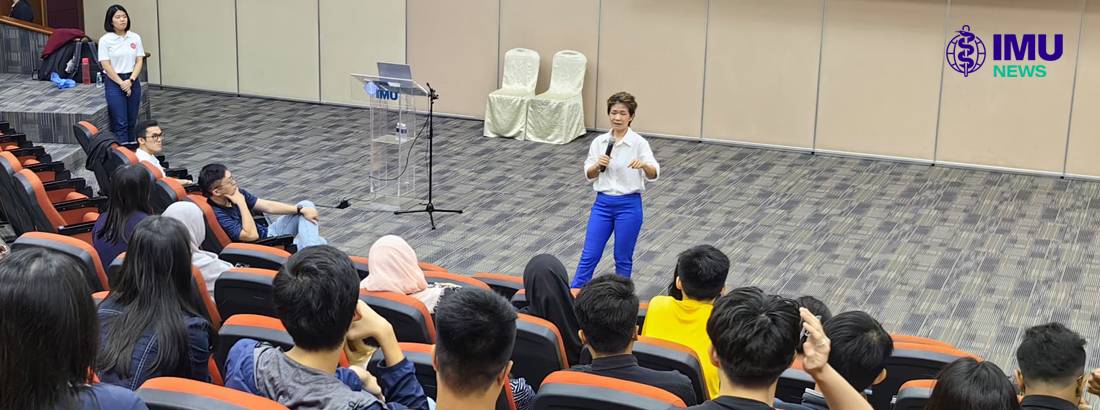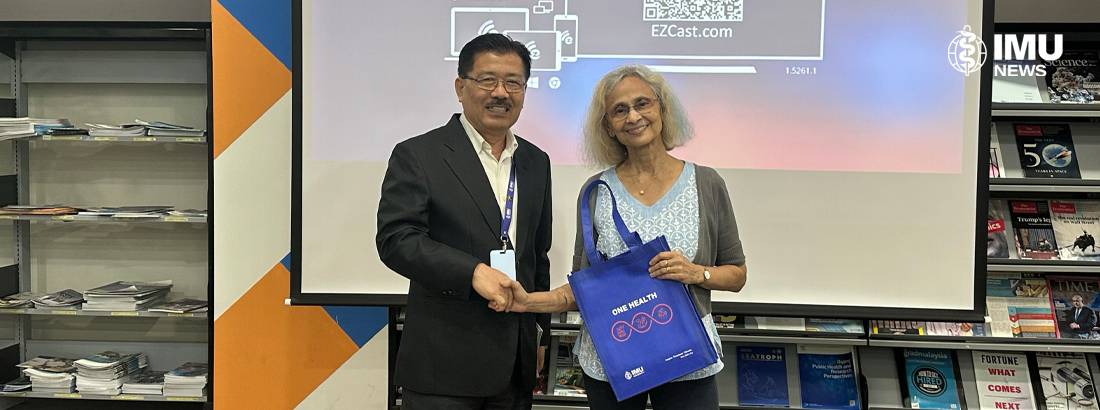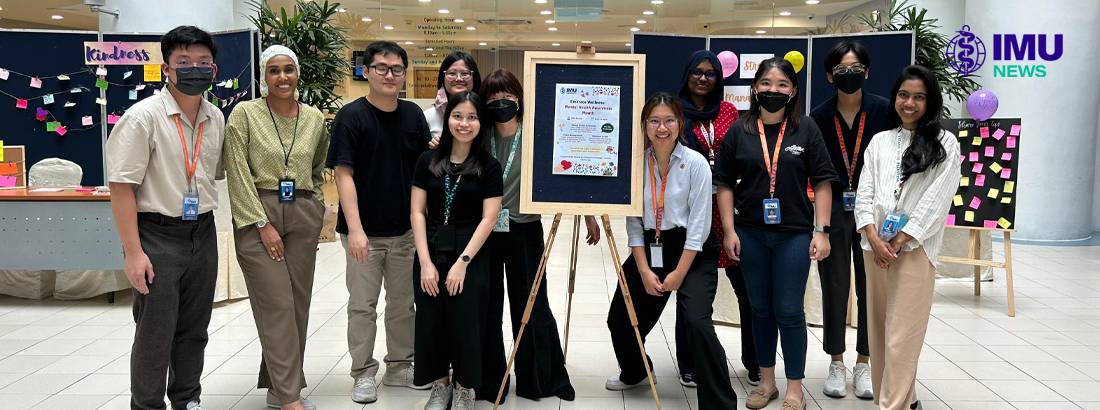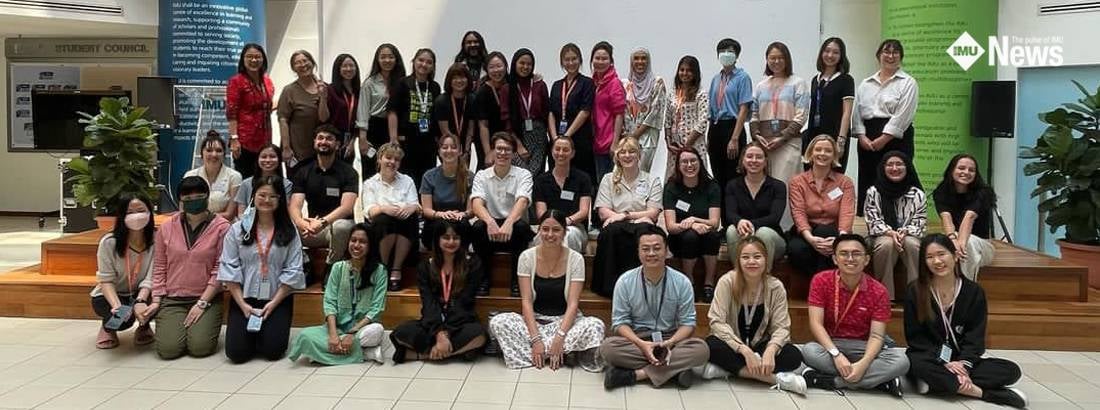The School of Psychology and Social Sciences is not just a place to get a degree but also to gain education towards self-actualisation. As Dean of the School, Prof Haslee Sharil Lim Abdullah shares with us his vision for his students and faculty.
At the core of the School of Psychology and Social Sciences (SOPSS) lies humanity, says its Dean, Prof Haslee Sharil Lim Abdullah. A lack of it creates a negative environment for both faculty and students while a space that promotes kindness, compassion and graciousness lays the foundation for a thriving school. “Many of our issues, be it issues at the student, university or community levels, boils down to whether there is a deficit or/and deficiencies of humanity,” he adds.
Taking the helm this year at the IMU’s newly launched School, Prof Sharil’s first focus at the SOPSS is to nurture personal connections for more impactful student interactions. “In this age where everything is becoming more robotic and technological,” he says, “we risk losing our human touch.” While digital interactions are efficient, he explains that the lack of face-to-face interaction minimises and compromises the human element that is essential to developing meaningful engagement.
By prioritising a human-centric approach, Prof Sharil feels that students and faculty will come together as a team that “can work, laugh, and cry together” while driving the school to greater heights.
Lessons for Life
Growing up as the youngest of seven siblings in a single-parent household, Prof Sharil’s childhood was tough and rough. The family struggled with finances and all his elder siblings had dropped out of school to work at a very young age. Prof Sharil had at one time stopped school in Form Four to start work at a sawmill. If not for the intervention of a dedicated teacher – who had personally convinced him to go back to school and managed to secure a scholarship for him to do so – Prof Sharil’s life would have been very different. It was the same teacher who convinced him to apply for the Malaysian Teacher’s College after Form Five. This gave him his first formal exposure to the fields of psychology and sociology.
His personal experiences gave him deep insights which eventually attracted him to the field of counselling. The theories that were taught to him came to life because he could see the application and usefulness in his own life. This real-world applicability is something that he hopes to impart to all his students. “Whatever knowledge that they gain, they should be able to see that it is applicable in their daily lives. It’s not just studying for the sake of passing exams,” he says.
To this end, Prof Sharil has been laying the ground to ensure that students at the SOPSS will find a network of industry and research opportunities that will enable them to put their theories into practise. One such collaboration would probably be with the National Sports Institute (or Institute Sukan Negara, ISN) where students will find opportunities such as internship placements and be able to run consultations and research work.
A Study of People and Quality of Life
The SOPSS offers psychology, clinical psychology, counselling and communications programmes. Having been in the counselling and psychology sector, Prof Sharil looks forward to the addition of communications into his repertoire. “Communication is an important part of the humanities. Housing the psychology, counselling and communications programmes under one roof will give us a unique synergy,” he says.
Students will be able to reap the benefits of knowledge sharing and strengthen each other’s chosen specialities. “We are dealing with human beings after all,” he says, explaining that the study of counselling, psychology and communications is essentially a study of people and quality of life.
He is excited to see how the faculties can work together. For example, the communications students can use their expertise on communications approaches to come up with innovative ways to disperse messages for public awareness initiatives. They can also study further how online counselling sessions can work better. On the other hand, psychology and counselling students can lend insights to the human psyche that can elevate communications. “It will be a good training ground for all our students,” he says.
Vision for the School
Prof Sharil envisions a school that upholds students’ fundamental psychological needs: Sense of belonging, power, freedom and fun.
He explains that building a sense of belonging is important as this enables students to feel connected to the Faculty, the School and the University. “If they feel they belonged, attended to and respected, a lot of wonderful things can happen. A healthy, collaborative relationship means that we can work out any challenges or problems,” he says adding that failure to do so can cause many stumbling blocks.
Students will also find that they are empowered to make decisions and to carve their own pathways. “We want them to become autonomous and independent. We would have inculcated values in them through the years at the IMU and eventually they should think and act for themselves based on their belief systems,” he says.
Supporting this empowerment is the freedom to make their own decisions, allowing them to develop cognitive capacities to make choices, which in turn will help to mature into well-adjusted adults.
Finally, Prof Sharil says, besides the hard work and discipline of academic pursuits, studying at the SOPSS should be fun. “What is life if there is no fun?” he asks with a twinkle in his eye, adding that having laughter and smiles is a great therapy for stress.
Way Forward
With this roadmap ahead of him, Prof Sharil looks forward to giving students the best experience they can get. However he says, it needs to start with himself and the team at the school: “We ourselves in the School need to be good role models of humanity, humility and civility. We must practice what we preach,” he explains, adding: “We need to be educators, not just providers of knowledge. We are here to help students shape their characters and their values, so that they can become healthy individuals with both success and happiness.”
About Prof Sharil
Prof Sharil is a renowned and respected counsellor and counsellor educator in Malaysia. Since 1977, he has gone through the grinds of being a schoolteacher, counselling teacher, senior assistant teacher, lecturer, senior lecturer, associate professor and professor. He spent 27 years at the University of Malaya and Universiti Sains Islam Malaysia before joining the IMU in November 2023.
His expertise is in empowering individuals to enhance their resilience by applying the counselling trilogy he has developed, namely Acceptance, Forgiveness, and Gratitude (AFG).
Throughout his career he has always upheld that integrity is of utmost importance, reminding his students and faculty: “It is not what we have that matters. It’s how we get what we have that matters; and it is what we do with what we have that matters most.”






